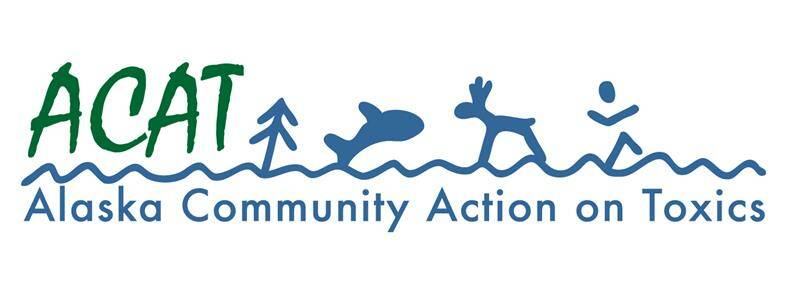By Lauren A. Estrella
I am an intern at Alaska Community Action on Toxics (ACAT) and a graduate student studying environmental and occupational health. ACAT urges that the Alaska Department of Environmental Conservation reject the proposed Operations Plan for the Nikiski Soil Treatment Facility and revocation of minor air quality permit (AQ1657MSS01) in order to stop the generation and release of hazardous air pollutants that will harm the health of nearby residents, shopping and places of worship, and school children.
Soil Treatment Technologies, LLC (STT) is the operator of this incineration facility, where they accept mostly petroleum-contaminated soil, but also soils contaminated with chlorinated compounds on a case-by-case basis. The incineration process includes placing the contaminated soil into a rotary drum where it is heated to 700 F, and flushing the heated soil with water, causing vapors. Those vapors are filtered and burned before being released into the atmosphere. During this incomplete combustion process, massive quantities of hazardous air pollutants (HAP) are released.
The facility is permitted to release up to 18 tons of NOx, 12 tons of CO, 27.9 tons of SO2, 5.9 tons of PM10, 2.5 tons of PM2.5, and 27.4 tons of VOCs on an annual basis. These pollutants are associated with many adverse health effects such as preterm birth and low birth weight, neurodevelopment disorders in children, increased occurrence of asthma, decreased cognitive function and certain cancers. The new Operations Plan is not only attempting to increase capacity of the facility but would add substantial emissions, including 9.9 tons of hydrochloric acid (HCL), just shy of the 10 tons per year that would categorize this facility as major source of HAP. HCL is toxic and corrosive, and thermal decomposition leads to release of gases and vapors which may cause severe injury, burns, or death, and is only one of the possible chemicals emitted from burning chlorinated compounds. The heating and burning of chlorinated compounds will also create dioxins, polycyclic hydrocarbon contaminants, and other complex and persistent hazardous air pollutants. Pollutants such as these are persistent, bioaccumulative and extremely toxic even in tiny quantities, putting the surrounding population at risk of cancer and other serious adverse health effects.
There is still time for change. The Alaska Department of Environmental Conservation has opened a comment period, running from now until July 2. I encourage all to use their voice and reject this new Operations Plan and demand the revocation of their minor air quality permit.
Lauren A. Estrella is a ACAT summer intern and graduate student in Environmental and Occupational Health, California State University Northridge.

